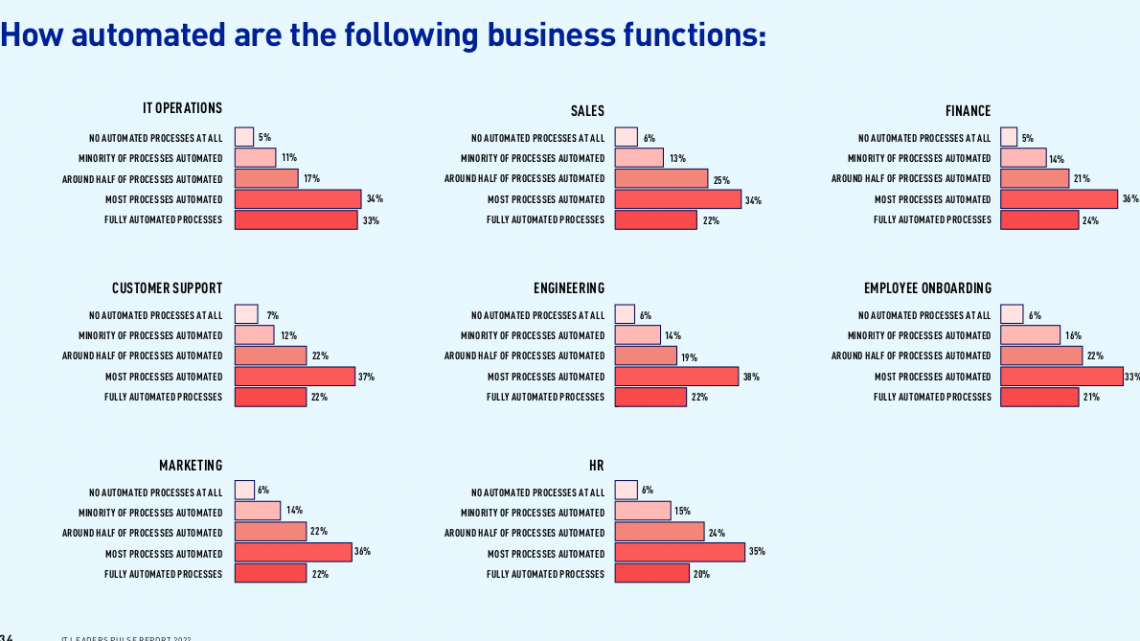
Skills shortage is a global problem
11. Oktober 2022Skills shortage is a global problem
New York, 11.10.2022
A global study (the IT Leaders Pulse Report 2022) has come to the alarming conclusion that every company lacks experts in digital transformation. The situation is so hopeless that more than a third of companies have given up the search. In their distress, they are forced to automate everything that can be automated, to train existing experts and to use low- or no-code tools.
The report is based on a worldwide survey of 1000 IT managers commissioned by the Salesforce company Mulesoft.
Nearly three-quarters (73%) of respondents said that attracting and retaining IT professionals has never been as difficult as it is today. Skill gaps are most evident in IT and systems architecture (60%) and cloud and infrastructure management (45%).
Nevertheless, 68% of companies are planning measures to increase their IT headcount in the next twelve months. Others have abandoned this plan, preferring to invest in improving IT staff wellbeing (82%) and training (78%).
Many senior IT leaders are also turning to automation and self-service initiatives to close the growing skills gap. Across industries, 58 percent of companies are automating tasks and processes more than before. Fifty-three percent are giving non-technical employees automation tools to help them meet requirements.
The study uncovers even more potential for optimization:
– 96% of companies currently use low- and no-code tools that allow business users to create and test new offerings themselves. 36% plan to increase their use in the next twelve months.
– 67% have either mostly or fully automated their IT operations. Many have implemented similar levels of automation in other areas of the business – including customer support (59%), finance (60%), marketing (58%), sales (56%) and human resources (55%).
– The majority of respondents plan to reorganize teams to improve processes and address process-related challenges. More than two-thirds (69%) of companies have formed or are in the process of implementing multidisciplinary „fusion“ teams. Twenty-two percent plan to do so within the next twelve months.
– Sixty-three percent of senior IT executives at companies that have already established fusion teams express satisfaction with them.
– 81% of senior IT executives are struggling with high IT complexity in addition to the skills shortage.
– 91% say that existing IT processes are hindering productivity. Process issues also negatively impact innovation (91%), technology adoption (92%), customer experience (92%) and employee experience (93%).
– 46% of senior IT executives say process improvements are a high priority for their organization over the next 12 months.
Translated with www.DeepL.com/Translator (free version)


